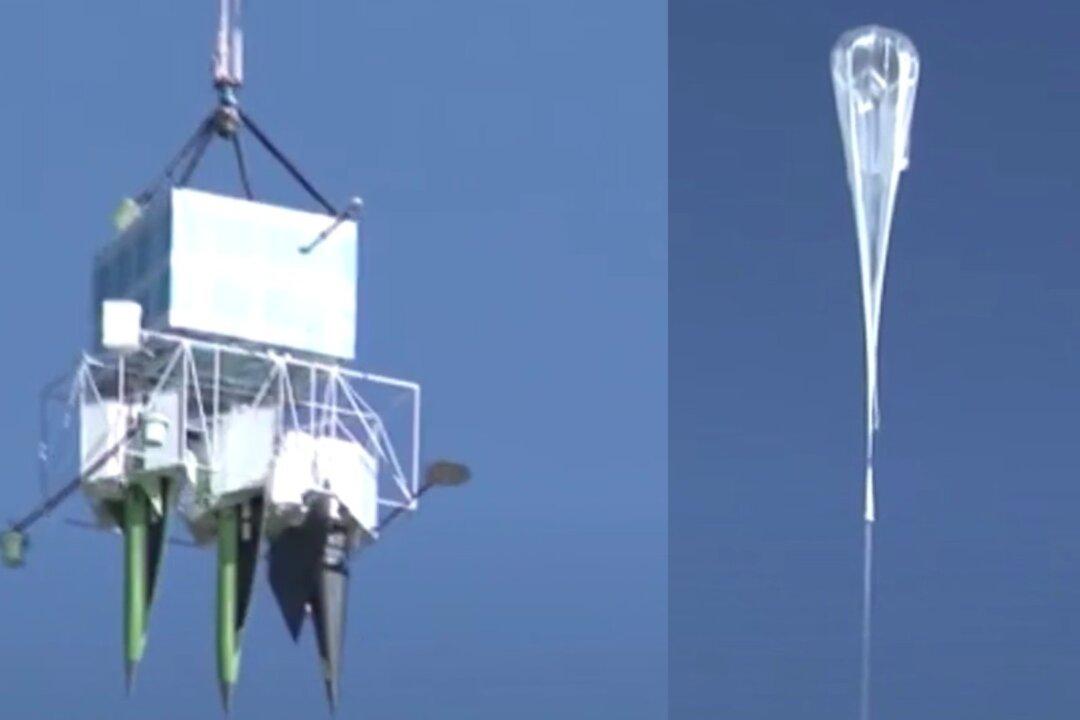Chinese state-owned television aired footage of a high-altitude balloon dropping hypersonic weapons in 2018.
The stunning footage displays a high-altitude balloon, not dissimilar from the one that recently traversed the United States, carrying three hypersonic glide vehicles (HGVs) into high altitude and dropping them for testing.




